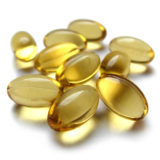

When the concept of multi-vitamins was introduced there were no real studies to support why we should take them. People thought that just by taking them that they would become healthy instantly. Of course, this is not the case.
Lets face it; a lot of us don’t get the recommended amount of fresh fruits and veggies, which is where you can receive most of your vitamins and minerals. Eating junk and processed foods and not getting enough exercise causes you to lack nutrition. These are the people who should really be taking multi-vitamins. By taking one daily you can receive some of the vitamins and minerals found in the foods you should be eating. I, like others I know, sometimes can’t afford to buy very healthy, hearty foods. A good way to help yourself is to get a multi-vitamin. Keep in mind that they are not a replacement for healthy foods, so you still need to get some nutrition through your diet. Thankfully, fruits and veggies aren’t always too expensive. Try Greek yogurts too!
Natural Sources of Vitamins
If you have a generally healthy diet and regularly exercise you may not have to take any. Lots of foods are fortified with vitamins and nutrients, so if you’re eating a fare amount of these foods you could overload your body if you’re also taking a multi-vitamin. Foods to get vitamins and nutrients from include: fresh fruits and veggies, whole grains, nuts and healthy oils.
Some people have specific vitamin deficiencies and, if you’re one of them, you should really be taking a multi-vitamin. Or you may just want to take a supplement for the specific vitamin your body fails to produce the right quantities of. This is something that you really need to talk to your doctor about.
Water-Soluble vs. Fat-Soluble
There are two types of vitamins: water-soluble and fat-soluble. While water-soluble vitamins go through your body and come out through your urine, fat-soluble vitamins are stored and build up; these are Vitamins D, E, and A. They are important but you don’t want too much to build up in your body. Make sure to get a standard multi-vitamin and not one that is packed with large, unnecessary amounts of these vitamins. Vitamin D is a little different and sometimes it is good to take an extra supplement but make sure not to exceed 2,000 IU.
Women
For women, the most important times to take vitamins are during childbearing years (folic acid), when you’re pregnant, and when going through menopause (calcium and Vitamin D). It’s not just at these times that you should take these vitamins; you can take them at any age. B vitamins – especially B6, B12 – and folic acid, are very important for women.
Men
Most men, especially 30-50 years old, have vitamin deficiencies whether they know it or not. Vitamins C, D and E, zinc, calcium and beta-carotene are the most important ones that men should focus on getting a decent amount of.
Children
When it comes to children, most do not need to take multi-vitamins. Kids should get most of their necessary vitamins from their food. Nowadays many are fortified. Yes, there are many sugary, fattening junk foods for kids, but the parents are the ones who buy them. If you stay away from these foods, just like with adults, your children shouldn’t need a multi-vitamin. B Vitamins, Vitamin D, iron and calcium are some of the more important nutrition children should receive. However, children who have allergies, health conditions, or low energy may benefit from taking a multi-vitamin.
Getting Your Doctor’s Approval
Talk to your doctor if you are confused or want to know exactly what vitamins you need or might be lacking. Always tell your doctor if you decide on taking any vitamins or supplements, especially if you are on a certain medicine or have a health condition, as some vitamins may pose contraindications. For example, Vitamin A is one to watch because it can cause liver damage, although the right amount and form will benefit your liver. Too much will increase the toxicity and negatively affect your entire body. For those with liver issues or concerns, consider taking Clinical Multi-Vitamin, as it contains the non-toxic plant form of Vitamin A, beta-carotene.




